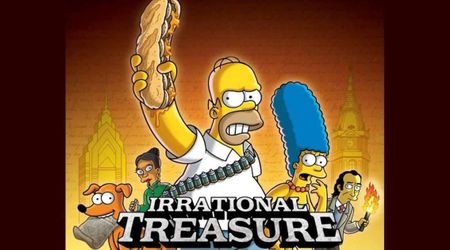'Mank': Who is William Randolph Hearst and why did he want 'Citizen Kane' buried? How Netflix film depicts it

"This is a business where the buyer gets nothing for his money but memory", says Louis B. Mayer (Arliss Howard), producer and co-founder of MGM (Metro-Goldwyn-Mayer) Studios. This is right before he addresses the technicians, cast, and crew of the studio in the 1930s and asks his employees to take a 50% pay cut in the face of the economic meltdown that the country had faced. He convinces them to wait until the banks reopen and also tells them that the Production Company will pay them every penny that is owed to them. Just as his company sold shine, shimmer, and glamor in the garb of memories to the audiences, he sold hope to his employees.
The film similarly sold us Hollywood of the 1930s. Sure, it is a reimagination of how the hunt for the 'Citizen Kane' story went and what really pushed Herman J Mankiewicz (Gary Oldman) aka Mank to pursue a story centered on the publishing mogul of West William Randolph Hearst (Charles Dance). There is his association with Marion Davies (Amanda Seyfried) that began during one of those glamorous sit-down parties that Hollywood was well-known for and then the association continues as Mank learns about Marion, the side of her that is witty and sharp and it is a revelation. A revelation that he is inspired to depict on the silver screen later in life when he is chained to his bed. He is an alcoholic and no more an angel than Hearst. He is a liberal who is caught amid a conservative crowd and most often than not, he is left to flounder around in such a setting attempting to explain to the elite section of Hollywood the differences between socialism and communism.
In a memorable dialogue with Hearst and Mayer, Mank explains that socialism is sharing the wealth with the working class while communism is sharing poverty. However, he is blind to his own prejudice and that is what the entire movie is about. The fact that it is blind to its own prejudice and bias when it comes to the portrayal of the 1930s is what makes 'Mank' a not very exciting film. Sure, it has its moments, and to watch a movie shot in monochrome is beautiful, but beyond that what we get from 'Mank' is a tale of how two men fighting over a story that one wants to spotlight and the other wants to bury. In fact, when Mank's brother learns that the story that Mank is writing will target one publisher mogul, he attempts to warn his brother but it is of no use really. Mank is told that he is being used by Welles, but is that really the case?
So what really happened with 'Citizen Kane' you wonder? For the longest time, it was believed that Hearst had heard about the lead character Charles Foster Kane of the film being molded after him from his employee Hedda Hopper. She was a gossip columnist who had informed Hearst that the portrayal was not flattering and since then, it was believed that the newspaper mogul managed to put a blanket ban on what many believed was Orson Welles' movie. Of course, the credit for writing the story has since been shared by Welles and Mank. Not only did the blanket ban aim to stand as an obstacle to the film's success, but people who were friends with Hearst and worked for him also tried to discredit Welles as well. This despite Welles claiming that the film's lead character was not based on Hearst or any other real person.
Turns out, Hearst knew about the film and its lead character much before Hopper had informed him and even before the release of the film. In fact, Hearst had tried to do everything possible to bury the film according to the memos that were dug out by historian Harlan Lebo for his book 'Citizen Kane: A Filmmaker's Journey'. Turns out Hearst was behind the communist witchhunt that targeted Welles and through this Hearst had tried to discredit him. Of course, Hearst failed big time as the film is now known as one of the best American movies of all time. Just ahead of the release of 'Citizen Kane', it was reported that the FBI had opened a case on Welles and his associations that were supposedly “communist in character.” A list of his associations included League of American Writers and Foster Parents’ Plan for War Children, among others. A memo found by Lebo indicates that Hearst’s friends in Washington also supported the investigation. Yes, 'Citizen Kane' did suffer from all the bad press, refusal by top chains to carry their movie in the theaters, and an Oscar snub as well, but in hindsight, the film ended up getting its due.
'Mank' directed by David Fincher and starring Gary Oldman, Amanda Seyfried among others can be streamed on Netflix from December 4.










